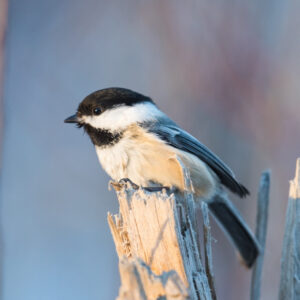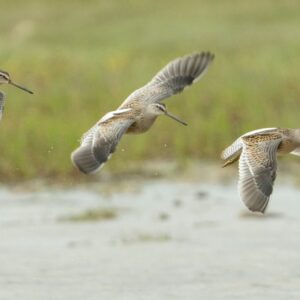Recent Government-Industry Scheming Casts Shadow Over Genetic Engineering Consultations
Environment and Climate Change Canada (ECCC) has released a report on the results of a pre-consultation on regulations for genetically engineered organisms including animals with wild counterparts. Over the last five years ECCC has approved a genetically engineered Atlantic salmon, aquarium fish and most recently, a fruit fly under these regulations which are part of the Canadian Environmental Protection Act (CEPA).
The report was enthusiastic about the uses of genetic engineering but largely silent on the risks of the technology, including to nature.
“The Government of Canada has made numerous rhetorical commitments to halt and reverse biodiversity loss. Yet, these commitments are absent from the report. Meanwhile, scientists have confirmed the first-known case of a genetically engineered animal escaping into the wild and breeding uncontrollably.,” observes Mark Butler, Senior Advisor with Nature Canada.
In 2022, Brazilian scientists documented a genetically engineered aquarium fish breeding in the wild with no hope of stopping the spread of the fish and its impact on other species.
The report states that two Indigenous organizations participated in the pre-consultation and called for ‘early, direct and mandatory consultations…that may have impacts on First Nations’ Inherent or treaty rights’.
In 2021 Canada passed the United Nations Declaration on the Rights Indigenous Peoples Act. Nature Canada has supported Indigenous organizations in their call for Canada to align CEPA and its regulations with the UNDRIP Act.
The report notes that industry is requesting the establishment of industry-government working groups.
‘Given the recent revelations about industry and government clandestinely rewriting regulations for genetically engineered seeds and excluding all opposing points of view, this is a terrible idea,’ says Mark Butler.
Other topics that came up in the consultation include:
- mandatory labelling of genetically engineered products;
- regulation of DIY genetic engineering;
- and whether the ‘need’ for an engineered organism should be part of the risk assessment process.
Overall, the results of the consultation were split with industry calling for reduced regulations and Indigenous, environmental, and animal welfare groups calling for more open and transparent reviews.
“Let’s remember these regulations sit under the Canadian Environmental Protection Act. It’s not called the Approve More GMO’s Faster Act,” points out Mark Butler.
The pre-consultation report states that the next stage will be targeted consultations with various stakeholders.
The Government recently passed Bill S-5, a bill to amend the Canadian Environmental Protection Act. Nature Canada’s response to the Bill’s passage can be found here. The new CEPA does require mandatory consultations for genetically engineered vertebrate animals.
For more information:
Mark Butler, Senior Advisor | Nature Canada
mbutler@naturecanda.ca
902-266-5401
Mark can provide interviews in French.



